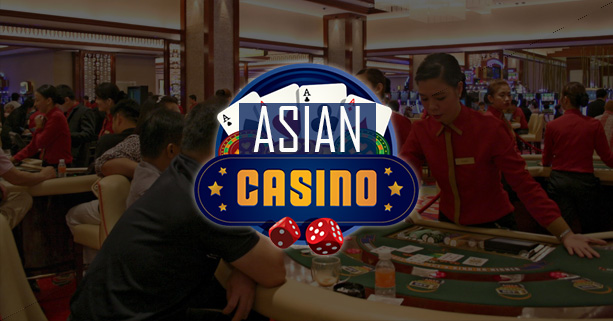Back in 2016, the word on the street among casino industry insiders was that the Asian sector was in big trouble.
The Chinese-controlled casino hub Macau – where major operators like MGM Resorts International, Wynn Resorts, and the Las Vegas Sands Corporation all maintain lavish properties – was slumping badly at the time. Through the first half of 2016, casino revenue in Macau fell by 11.4 percent. That dip followed a massive 34 percent decrease in 2015, and analysts for Morgan Stanley called the second quarter of 2016 the “worst quarter in the last five years” for Macau gaming.
There were many reasons behind the economic downturn in Macau, but one loomed large enough to put the entire industry’s future in doubt – President Xi Jingping.
 President’s Crackdown Cripples Macau’s High-Roller Scene
President’s Crackdown Cripples Macau’s High-Roller Scene

The hardline authoritarian took control of the Chinese Communist Party in 2013, quickly consolidating his power with a series of maneuvers favored by totalitarian governments everywhere. By 2015, the Xi government was targeting the gambling industry with high-profile arrests and raids.
Hua Jingfeng – who serves as a deputy bureau chief for China’s Ministry of Public Security – issued a statement at the time warning casino operators to be careful:
According to the Xi government’s logic, foreign casino corporations were using Macau as a way to funnel high-rolling Chinese gamblers to their venues. And indeed, the “junket” system adopted by leading Asian operators such as Australia’s Crown Resorts was premised on spoiling Asian VIPs and offering them incentives to gamble Down Under.
With the Xi government cracking down hard on casino junkets, and so-called corruption within Macau’s wider gaming industry, wealthy gamblers became increasingly wary. The government’s intimidation culminated with the arrest of 19 employees of Crown Resorts in 2016, a spectacle which saw executives and even an Australian citizen jailed for several months.
The President’s crackdown coincides perfectly with the prolonged revenue slump experienced by Macau casinos.
Grant Govertsen, a financial analyst for Union Gaming Research Macau, told investors that a sharp decline in VIP revenue was responsible for falling revenue:
But even as revenue was falling off the proverbial cliff, casino corporations were making major investments in the Macau market.
 Slump Ends After Two World-Class Resorts Open for Business
Slump Ends After Two World-Class Resorts Open for Business

Casino revenue in Macau fell for 26 consecutive months stretching from 2014 through 2016, but the disastrous streak finally ended in August.
Not coincidentally, that was the same month that Wynn Resorts opened the doors to its lavish Wynn Palace. The newest resort on Macau’s Cotai Strip at the time, Wynn Palace joined Wynn and Encore Macau among the company’s Asian interests.
Steve Wynn, the former chairman of the board and chief executive officer of Wynn Resorts, issued a statement celebrating Wynn Palace in grandiose terms:
Built at a cost of $4.4 billion, the five-star rated Wynn Palace is home to 1,706 guest rooms across 29 floors. Boasting 350 gaming tables dominated by the local favorite baccarat, the venue became an immediate hit with gamblers.
And not just the VIPs either. As part of Macau’s recent resurgence, the “mass market” – or the type of recreational gamblers who make up the bulk of visitors to Las Vegas every year – provided much of the support needed to end the revenue slump.
Union Gaming issued a note to investors confirming that all market segments – VIP and mass – were growing in lockstep:
One month later, Macau’s casino industry expanded once again, this time courtesy of the Las Vegas Sands Corporation.
With the opening of the Parisian Macau in September, the Sands empire in Macau doubled overnight.
Billionaire Sands mogul Sheldon Adelson offered his commentary on the company’s enduring commitment to Macau:
And to top things off, this year MGM Resorts International joined the party by opening MGM Cotai. The massive $3.4 billion property, which features 1,400 rooms and 50,000 square feet of retail space was two years behind its construction schedule, but MGM matched Wynn and Sands by doubling down on Macau.
Here’s how Grant Bowie – who serves as chief executive officer and executive director of MGM China Holdings Limited – described the glittering new member of the MGM family:
 The Three Casino Kings of Macau Are Back in Action
The Three Casino Kings of Macau Are Back in Action

The immediate impact of these new developments was felt across Macau. Sands recorded $5.7 billion in net revenue over the second half of 2016, with $3 billion of that coming directly from its Macau holdings.
As for Wynn, operating in Macau generated $185.5 million of the $305.8 million net revenue over the same period.
Fast forward to today and the story remains the same – revenue in Macau’s casino is increasing across the board.
And for the rest of 2018, JPMorgan predicts a VIP growth rate of 13 percent, with mass market growth coming in at 15 percent. All in all, the analyst expects total gaming revenue to grow by 14 percent across 2018.
 Conclusion
Conclusion

Macau’s gaming industry was certainly on life support as recently as 2016, but times have changed for the better since then. Between the return of VIP high-rollers, and the rise of recreational play throughout the region, Macau’s casinos are thriving. And with major investments by three of the world’s largest casino corporations coming to the rescue, the future for gaming in Asia’s casino capital appears to be brighter than ever.

 MENU
MENU











